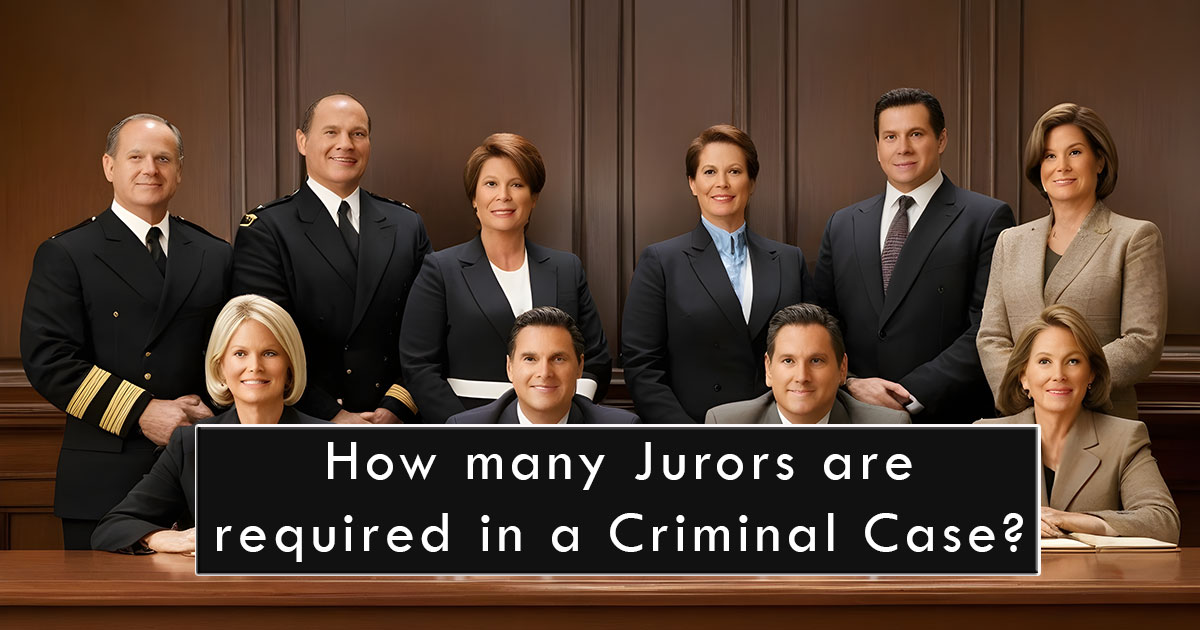The number of jurors in a criminal case is a fundamental aspect of the judicial system, pivotal to ensuring a fair and impartial trial. This topic garners significant interest from legal professionals, students, and the general public, as it reflects the justice system’s commitment to upholding the rights of defendants and the integrity of legal proceedings. In this article, we delve into the specifics of jury composition in criminal cases, examining the typical number of jurors, the reasoning behind these numbers, and how they vary across different jurisdictions.
Standard Jury Size in Criminal Trials
The number of jurors in a criminal trial can vary depending on the jurisdiction and the severity of the case. However, there are general standards that most court systems follow.
United States: A Common Standard
In the United States, the size of a jury in a criminal trial typically comprises 12 members, especially in felony cases. This tradition is rooted in English common law and has been upheld as a standard for ensuring a diverse and representative group of jurors.
Flexibility in Non-Felony Cases
In misdemeanor or lesser criminal cases, some states allow for smaller juries, often comprising six to eight members. This flexibility is based on the principle that less severe cases might not require the full complement of 12 jurors.
International Variations
Globally, the number of jurors in a criminal case can vary significantly. In some countries, criminal trials do not use juries at all, instead relying on panels of judges. In others where juries are used, the number can range from as few as five members to as many as 15, depending on national laws and the nature of the case.
The Importance of Jury Size
Ensuring Fair Representation
The primary purpose of having a specific number of jurors is to ensure that the defendant receives a fair trial. A larger jury size is thought to provide a more comprehensive representation of society, reducing the likelihood of bias or unfair judgment.
Deliberation and Decision-Making
Larger juries are believed to be more effective in deliberating and coming to a consensus. With more people, there is a greater chance for diverse perspectives, leading to thorough discussion and consideration of the evidence.
Legal Implications and Challenges
Unanimous vs. Majority Verdicts
In many jurisdictions, a unanimous verdict is required for a conviction in criminal cases, especially for serious charges. This requirement underscores the importance of having enough jurors to discuss the case thoroughly and reach a consensus.
The Challenge of Jury Selection
With a larger number of jurors, the process of jury selection becomes more critical and complex. Ensuring that the jury is impartial and represents a cross-section of the community is a significant challenge in the legal process.
Conclusion
Understanding the number of jurors required in a criminal case is essential for anyone interested in the legal system. Whether in the United States with its standard 12-member jury in felony cases or in other countries with varying numbers, the composition of a jury plays a critical role in the pursuit of justice. It reflects the legal system’s efforts to balance fairness, representation, and efficiency in criminal proceedings, highlighting the intricacies and responsibilities inherent in the judicial process.









Leave a Reply